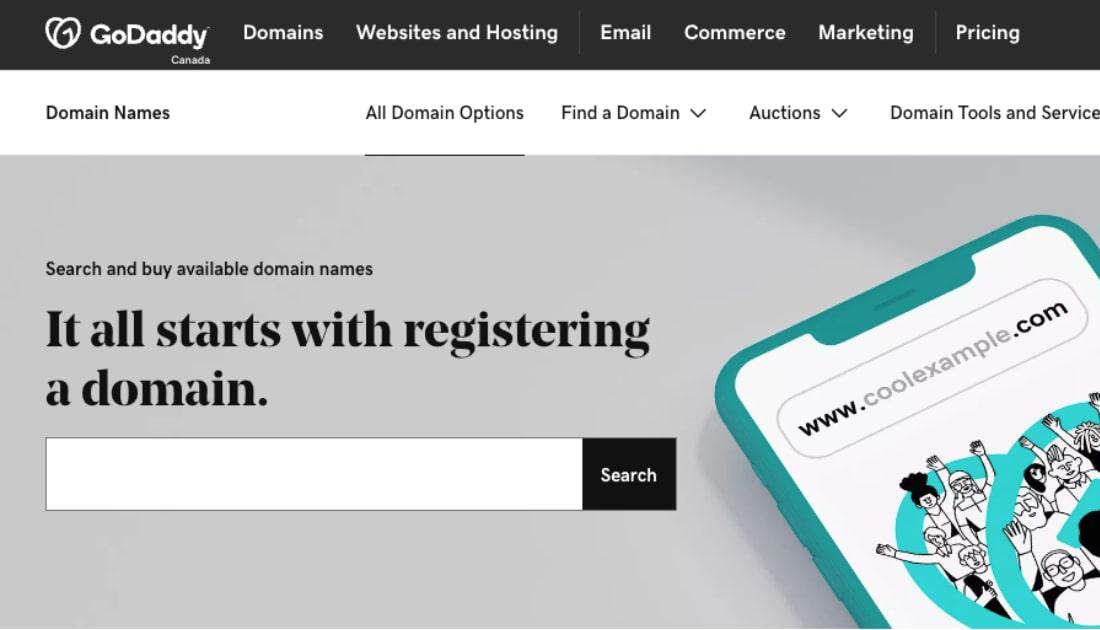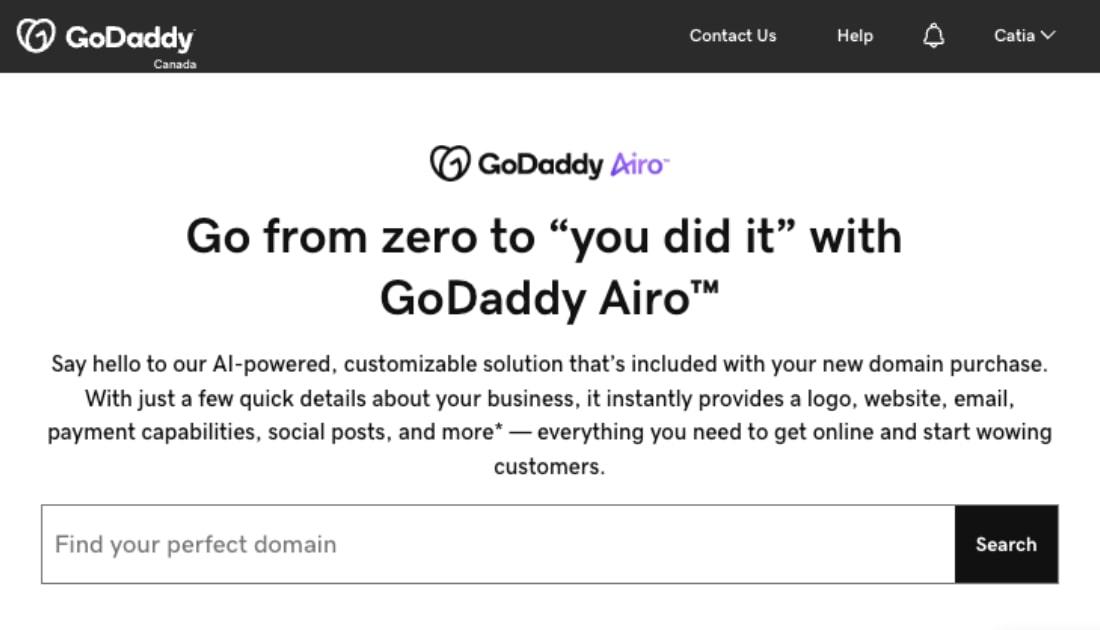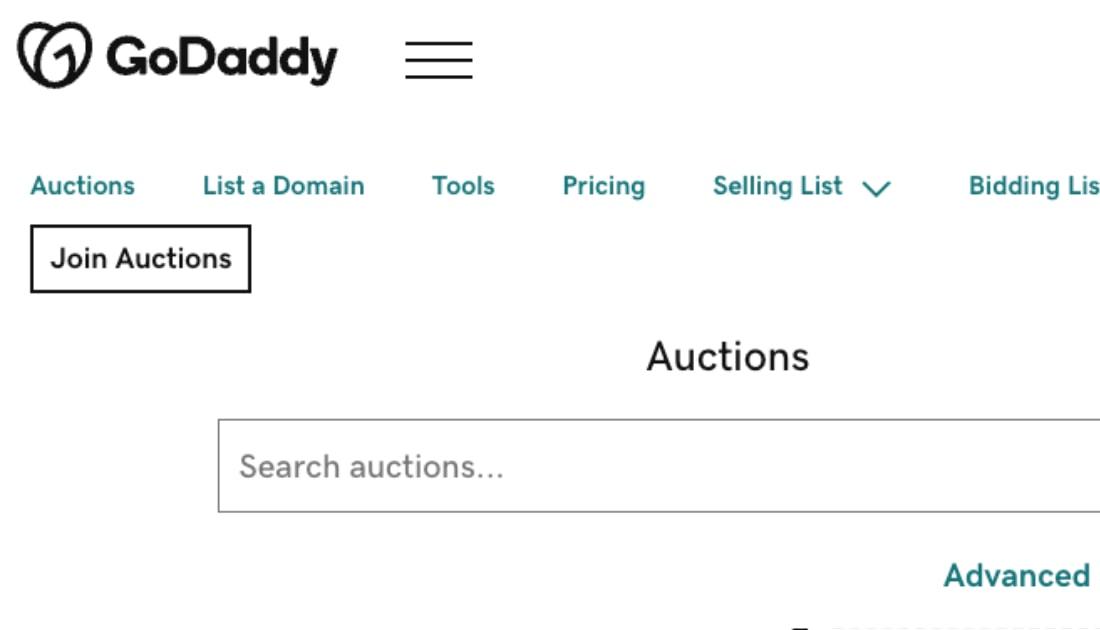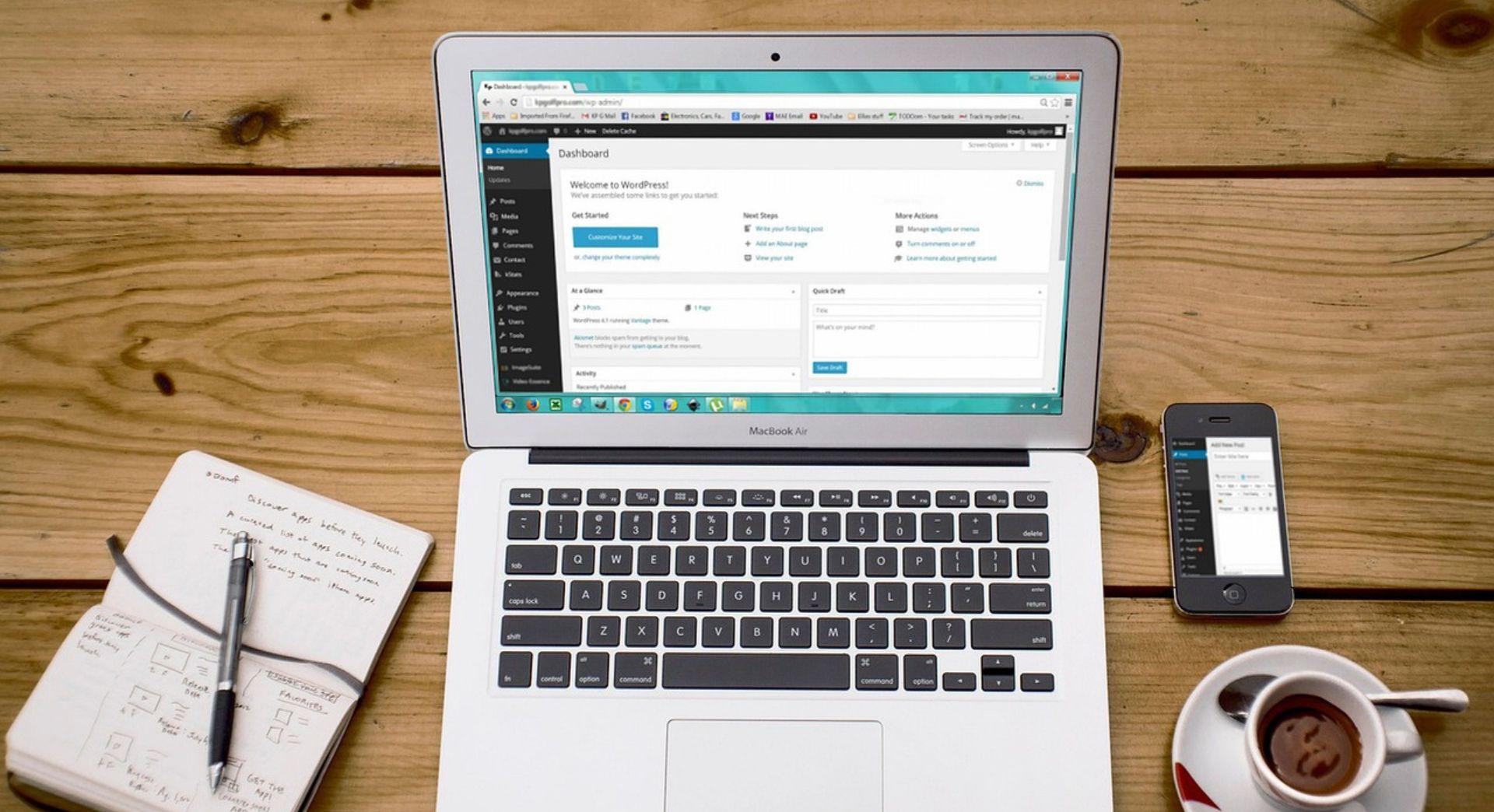If you’re starting a business you have a long list of to-dos — design a logo, find a good location for your store or office and register a domain name so you can start building your website. For many people, that last task starts with domain lookup.
A domain name is like a street address, except it tells people where to find your website.
Your domain name must represent your business. After all, it will appear on your business cards, at the bottom of your emails — possibly even on your shop window or vehicle signage. And while finding the perfect domain name might seem like a big job, it really just takes a few simple steps.
So put on your I’m-a-capable-entrepreneur-who’s-going-to-learn-something-new-today hat and let’s start off with the basics.
The purpose of a domain name
Why do they exist? Why do we exist? What is the meaning of life?

Photo: Cesar Saravia on Unsplash
Much like the physical sign out in front of a store, a domain name marks the online location of your business. Your domain allows your customers and others to:
- Find your business website
- Understand at a glance what your business is about
- Remember it later when they tell their friends
Registering a domain name is one of the most critical decisions you will ever make. To get the complete picture, is it helpful to understand the basics about what a domain name actually does for your website.
There are 200 million active websites online
Every computer has an IP address assigned to it and it’s this number that search engines use to locate a given website.
Now, for most humans, long strings of numbers are really hard to remember. It’s much easier to remember a word or phrase like “facebook” or “bunnings warehouse,” for example.
Domain names were created to save us the trouble of memorizing IP addresses.
When you type a domain name into your browser, it simply uses that name to locate its corresponding IP address. Then it shows you the website associated with it.
Editor’s note: Tell GoDaddy Airo about your idea and it will generate a domain name, logo, website, social media handles, professional email and more — all for the price of your domain name.
What are the criteria for a great domain name?
You may not have given domain names too much thought before but you probably have noticed a few that stood out.
Maybe you’ve seen one that was ridiculously long and barely fit on the side of a truck. Perhaps a domain caught your eye because it was something other than .com — it ended with .beer or .ninja for example.
What makes a domain name great depends on the goal of your website and the type of business you have.
- Are you looking for a domain name that exactly matches your business name?
- Maybe you want a domain name that reflects your Canadian pride?
- Perhaps you want something memorable, catchy and clever for an upcoming ad campaign?
Take a minute to think about your goals, the type of business you are in and what image you want to present online.
How do you register a domain name?
Since only one person can use a domain name at any given time, you first have to find one that is available for registration.
Do a domain lookup
Type in the first thing that comes to mind and see what the search spits out. Go ahead!
Check to see if the domain you want is available now
You can look up your business name, your product name, your last name or your dog’s name. You won’t break the domain search tool, I promise.
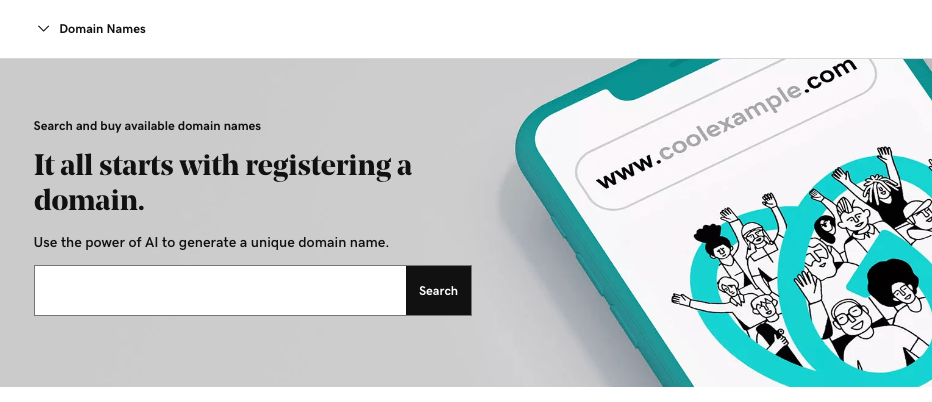
You’ll get one of two results:
Result No. 1: The domain name you want is available.
Lucky you! Go register it right now before someone else does.
Result No. 2: The domain you wanted is not available.
Bummer. But don’t despair: if your desired domain name is taken, you have a couple of options.
In both cases, GoDaddy’s domain lookup tool also makes domain name suggestions related to the one you typed in. In fact, you may even find cheaper domain alternatives.
What to do if your first choice is taken
Domains have been around for 30+ years and in that time, lots of really good ones have been claimed. Here’s what to do if the one you have your heart set on isn’t available.
1. Try buying it from the owner
If you really really want that domain name, you can try out GoDaddy’s Domain Broker Service. A GoDaddy agent will get in touch with the person who has the domain and see what price they’d be willing to pass it on to you for. If the owner is interested in selling, the agent will act as a go-between to get the domain name for you.
You can also contact the owner of the domain yourself. You’ll have to try to find their contact details using GoDaddy’s WhoIs lookup tool and send them your offer.
If you're successful, you can then move the domain to your GoDaddy account for easy management.
2. Choose a different domain name

To the left of the dot, you can work with all of the letters of the English alphabet as well as a number of language scripts. You can use any combination of characters to create a domain name up to 63 characters long, although good luck fitting that on a business card.
GoDaddy’s domain lookup makes suggestions based on the terms you type in.
You can come up with something new on your own, too. You could add a keyword to your business name — like your product category or location. This makes your web address longer, but might get you one that’s available for registration.
3. Use a different Top-Level Domain (TLD)
The letters that appear to the right of the dot — .com, for example — are called TLDs. GoDaddy offers hundreds of TLDs, ranging from .quebec to .club, .shop and .ski.
If it is important that your customers know your business is Canadian, the .ca TLD is your best choice. Canadians prefer to do business with .ca websites. When they see .ca in your web address, they instinctively know they can expect pricing in Canadian dollars and most importantly, no duties.
Settling on a domain name can be a difficult choice. My advice is to pick what best fits the overall impression you want to leave with your website visitors.
Complete the process: register the domain name
Once you’re ready, you can go ahead and register the domain name. You just have to provide some key info and then you’ll be ready to start building a website!
Of course nothing is stopping you from registering more than one domain name.
They are a fairly low-cost expense that you can always sell if you find that you don’t need them later on. Many business owners even buy several domain names — misspellings of their business name, names with local keywords in them — and direct them to their primary domain.
Editor’s Note: Did you know that you can also search and buy domains in bulk with GoDaddy?
Domain lookup: a powerful tool

Photo: You X Ventures on Unsplash
These days, a custom domain name is essential. It is the online home for your website, the call-to-action at the end of your commercial — it will even be in the email address you print on your business card.
If your first-choice domain name is taken, it’s really not the end of the world. Any domain name can be adjusted based on what’s available and what you think will click with your customers.
Once you find a domain name that you’re happy with, go ahead and register it. Then check that off the list of the many things you need to do to launch your business!
This domain lookup post was originally published on 16 July, 2019 and was updated on 7 January, 2020.

